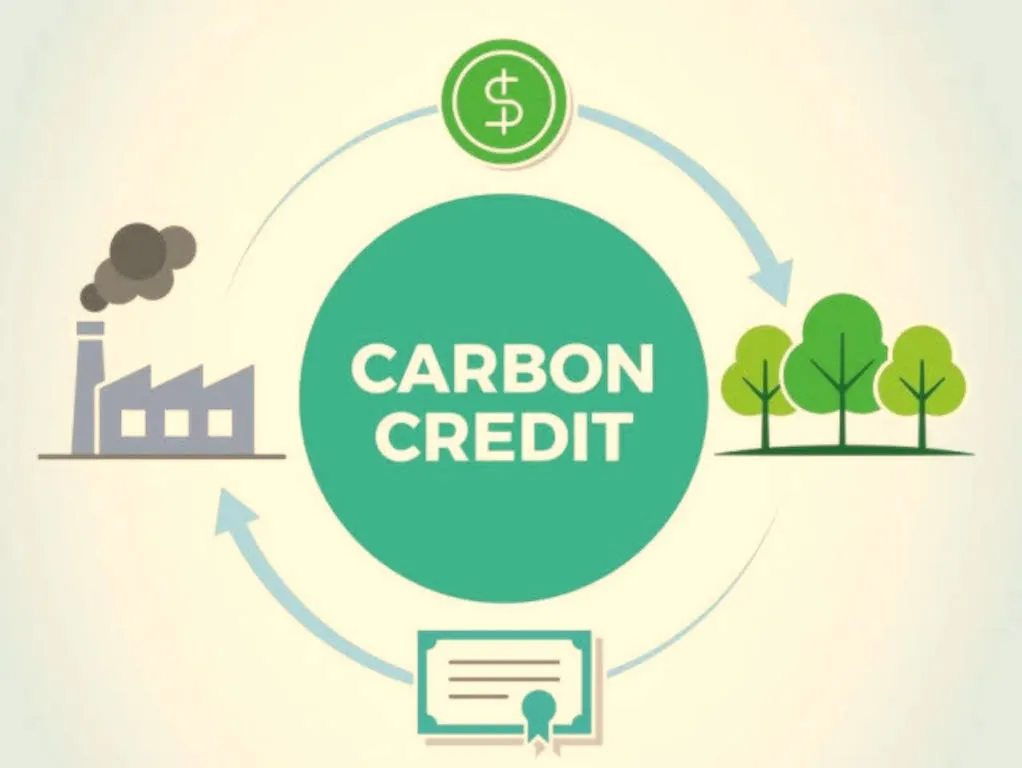What is a Carbon Offset and What are the Benefits

Calculate your Carbon Footprint

What are Carbon Offsets ?
Carbon offsets are transferable certificates or allowances associated with actions that reduce the amount of carbon dioxide (CO2) in the air.
A carbon offset is a financial contribution made to support projects that reduce or capture carbon dioxide (CO2) emissions, compensating for the emissions generated elsewhere. It allows individuals and businesses to take responsibility for their environmental impact by funding initiatives such as reforestation, renewable energy, carbon capture, etc. thus neutralizing their carbon footprint.
Carbon offsetting refers to the practice of purchasing these offsets to counterbalance the emissions produced from activities like travel, manufacturing, or energy use, effectively making one’s actions carbon neutral.
Flight carbon offsets specifically refer to offsetting the emissions produced by air travel. Since flying generates significant CO2 emissions, purchasing flight carbon offsets allows passengers to fund projects that reduce or absorb an equivalent amount of CO2. These sustainable projects often include initiatives like planting trees, supporting clean energy, or investing in technology that captures emissions.
By purchasing carbon offsets for air travel, travelers can effectively reduce their environmental impact and contribute to global sustainability efforts.
.
The Benefits of Offsetting Flight Carbon Emissions for Individuals and Companies

For Individuals & Families
1. Reduce Personal Carbon Footprint
Benefit: By buying carbon offsets for their flight emissions, individuals can directly reduce the carbon footprint associated with their air travel.
Air travel is one of the most significant sources of personal carbon emissions. Purchasing offsets allows travelers to mitigate this impact by supporting projects that reduce or sequester carbon elsewhere, such as renewable energy projects or forest preservation initiatives. This helps individuals balance their environmental impact while still enjoying the convenience of flying.
2. Support Sustainability Initiatives
Benefit: Offsetting flights helps support global environmental projects aimed at sustainability.
When individuals purchase carbon offsets, the funds go toward supporting clean energy, reforestation, and community-driven environmental projects. This means that your contribution directly supports initiatives designed to reduce overall greenhouse gas emissions, improving sustainability on a global scale.
3. Contribute to a Greener Future
Benefit: Carbon Offset for Air Travel promotes long-term climate health by investing in projects that benefit future generations.
By offsetting their flights, individuals are helping finance environmental solutions that capture and reduce carbon emissions over the long term. These projects, like forest conservation or methane capture from landfills, not only reduce emissions now but ensure a cleaner, healthier environment for the future.
4. Align with Personal Values
Benefit: Carbon Offset for Flights helps individuals align their actions with their environmental and ethical values.
Many people want to reduce their environmental impact but may still need to fly for work or personal reasons. Carbon offsets offer an opportunity to take responsibility for the carbon emissions produced, ensuring their actions align with their values of protecting the planet.
5. Boost Social Responsibility
Benefit: Offsetting air travel promotes personal accountability and social responsibility.
Taking the initiative to offset flight emissions shows an individual’s commitment to global environmental issues. This act not only reflects personal responsibility but can also inspire others to take similar actions, promoting a larger cultural shift toward environmental awareness and action.
Benefits of Carbon Offsets for Businesses

1. Enhance Corporate Social Responsibility (CSR)
Benefit: Offsetting flights improves a company’s CSR profile.
In today’s world, consumers and clients increasingly expect companies to take responsibility for their environmental impact. By offsetting carbon emissions from corporate air travel, businesses can demonstrate their commitment to sustainability, which can enhance their brand image and reputation among environmentally-conscious customers and stakeholders.
2. Meet Environmental Goals and Regulations
Benefit: Carbon Offsets for Flights helps companies meet environmental and regulatory commitments.
Many companies have set ambitious sustainability targets, such as reducing their carbon emissions or achieving carbon neutrality. Offsetting the emissions from flights is a measurable and effective way to meet these goals. It also ensures compliance with any environmental regulations that may be in place, avoiding potential penalties or reputational damage.
3. Improve Employee Engagement and Satisfaction
Benefit: Supporting flight carbon offset programs can engage employees and boost morale.
Many employees are increasingly looking to work for companies that take sustainability seriously. By committing to carbon offset programs, businesses can boost employee engagement by aligning their values with those of their workforce. This demonstrates a company’s commitment to the planet and can create a sense of pride among employees.
4. Attract Environmentally-Conscious Clients
Benefit: Companies that offset emissions appeal to eco-conscious clients.
Clients, particularly those in sectors such as travel, retail, or consulting, are becoming more environmentally aware and may choose to work with businesses that prioritize sustainability. Offsetting flight emissions helps companies show that they care about the planet, which can attract customers who prefer to do business with green-minded organizations.
5. Boost Long-Term Business Sustainability
Benefit: Flight offsets contribute to the long-term sustainability of the company.
By supporting carbon offset projects, companies are investing in a sustainable future. This not only helps to manage environmental risk but also ensures the company can operate in a world that is increasingly focused on environmental responsibility. Long-term, this can help businesses adapt to changing regulations, market demands, and environmental challenges.
These benefits highlight the various ways both individuals and businesses from across the world can contribute positively to environmental sustainability by offsetting their flight emissions, improving not just their environmental impact but also their social responsibility and future-proofing their operations.
How Carbon Credits Help Accelerate Decarbonization

The Role of Carbon Credits
Carbon credits are essential tools in the global effort to combat climate change. They represent a reduction or removal of greenhouse gases from the atmosphere, achieved through various projects. Here’s how they contribute to decarbonization:
- Encourage Investment in Green Projects: By purchasing carbon credits, you fund projects that might otherwise lack financial support. This drives innovation and expansion in sustainable technologies and practices.
- Create Economic Incentives: Carbon credits provide a financial incentive for organizations to reduce their emissions. This market-driven approach accelerates the transition to a low-carbon economy.
- Promote Global Cooperation: Carbon credit systems enable countries and organizations to work together towards global climate goals, fostering international collaboration and accountability.
How Carbon Credits Work
Carbon credits are generated through projects that reduce or remove greenhouse gases from the atmosphere. Here’s a brief overview of how they work:
- Project Implementation: Projects are developed and implemented to achieve measurable emissions reductions. This could involve planting trees, generating renewable energy, or capturing methane emissions.
- Verification: Independent third-party organizations verify the emissions reductions achieved by the project. This ensures that the reductions are real, additional, and quantifiable.
- Certification: Verified emissions reductions are certified and issued as carbon credits. Each credit represents a specific amount of CO2 reduced or removed from the atmosphere.
- Trading and Purchase: Carbon credits are bought and sold in the carbon market. Buyers can purchase credits to offset their emissions, support sustainable projects, and contribute to global decarbonization efforts.
Benefits of Carbon Credits
- Economic Efficiency: Carbon credits provide a cost-effective way for organizations and individuals to reduce their carbon footprint.
- Environmental Impact: Offset projects funded by carbon credits deliver real and measurable environmental benefits.
- Global Collaboration: The carbon market fosters international cooperation and supports global climate goals.
Carbon Offsets for your Flights




